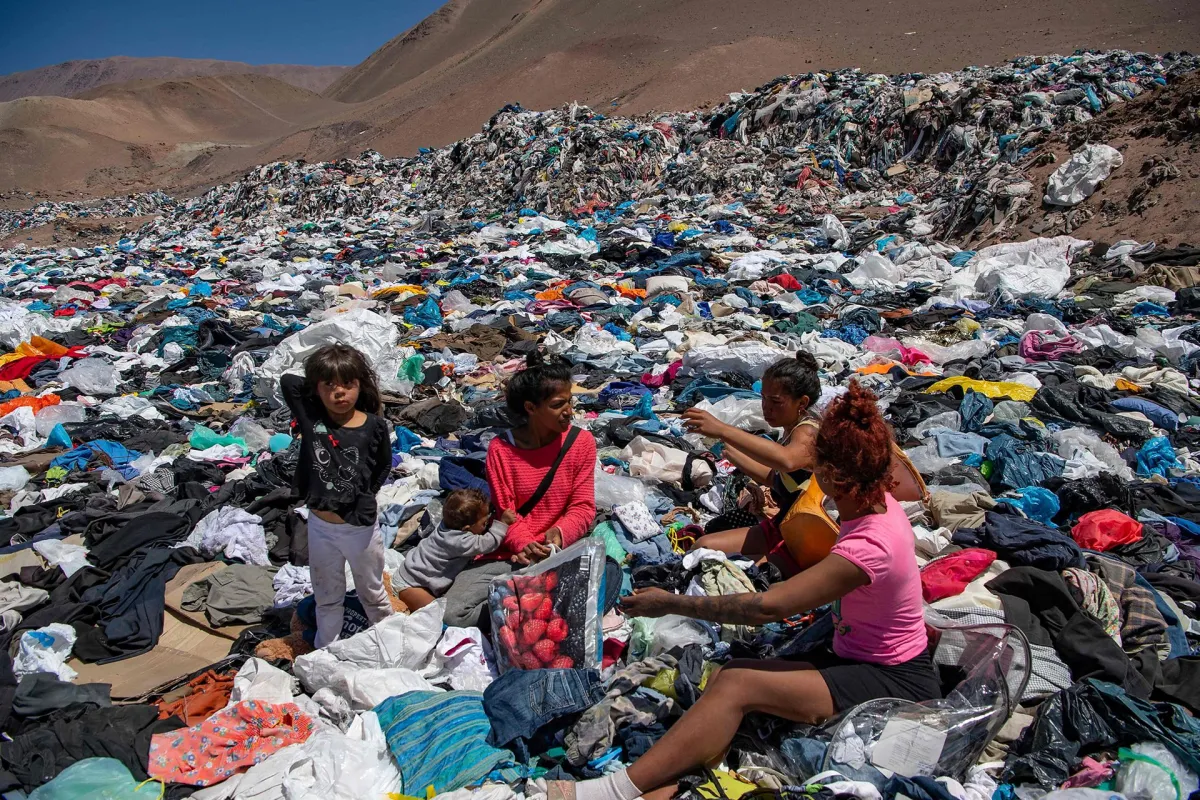
The social effect of rampant consumerism in the clothing industry – such as child labour in factories or derisory wages – is well-known, but the disastrous effect on the environment is less publicised.
Chile has long been a hub of second-hand and unsold clothing, made in China or Bangladesh and passing through Europe, Asia or the United States before arriving in Chile, where it is resold around Latin America.
Some 59,000 tonnes of clothing arrive each year at the Iquique port in the Alto Hospicio free zone in northern Chile.
Clothing merchants from the capital Santiago, 1,800km (1,100 miles) to the south, buy some, while much is smuggled out to other Latin American countries. But at least 39,000 tonnes that cannot be sold end up in rubbish dumps in the desert.
“This clothing arrives from all over the world,” Alex Carreno, a former employee in the port’s import area, told the AFP news agency.
“What is not sold to Santiago nor sent to other countries stays in the free zone” as no one pays the necessary tariffs to take it away.
“The problem is that the clothing is not biodegradable and has chemical products, so it is not accepted in the municipal landfills,” said Franklin Zepeda, the founder of EcoFibra, a company that makes insulation panels using discarded clothing.
“I wanted to stop being the problem and start being the solution,” he told AFP about the firm he created in 2018



